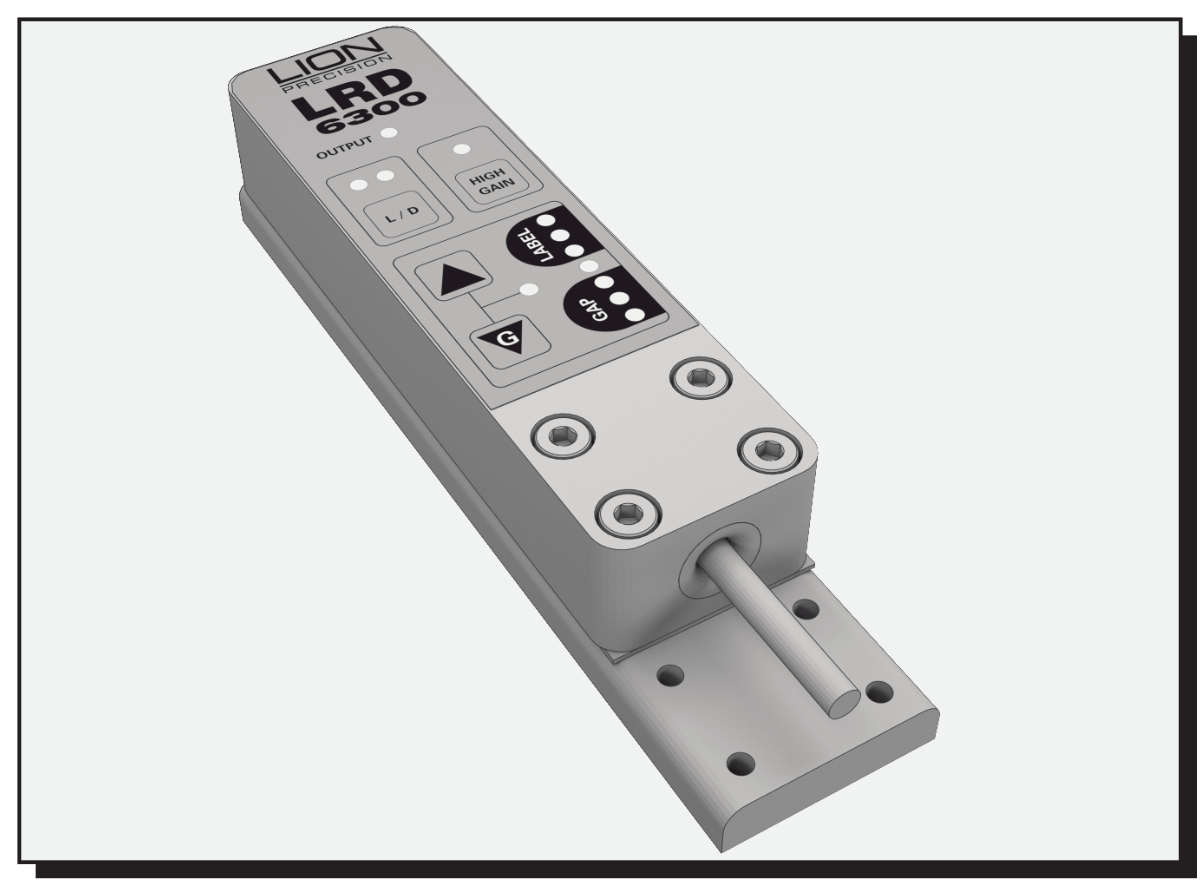
USER’S GUIDE for the
LRD6300 and LRD6300C – Capacitive Label Sensor
Description
The Lion Precision LRD6300 Label Sensor uses capacitive technology to sense label edges for registration, counting, splice detection or other applications. Capacitive technology provides the fastest and most accurate edge detection method available.
The LRD6300 has an integral cable; the LRD6300C has an M12 connector.
Connecting to the Sensor: Warnings
- Sensor body is connected to Ground.
- Sensors must not be attached to voltages in excess of 30VRMS or 60VDC.
- All power must be off when installing the sensor.
- Use of the equipment in any other manner may impair its safety and EMI protections.
LRD6300 and LRD6300C Wiring
Some older model LRD sensors have different wire colors. If you are replacing an older/other model, the “Other Model Color Reference” will help you quickly replace the older sensor with the LRD6300.
| LRD6300(C) Wire Color | Other Model Color Reference | Connection | Notes |
| Brown (1) | Red | +Vin (12-24VDC) | 80mA max |
| White (2) | Green | NPN Output | 150mA max |
| Blue (3) | Black | Ground | Connected to sensor body |
| Black (4) | Blue | PNP Output | 150mA max |
| Brown | N/A | No longer used |
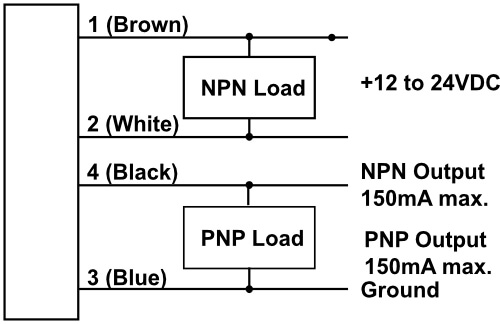
Sensor Configuration
|
Light/Dark Switching In “Light” switching mode, the sensor outputs are active/on during the gap. In “Dark” switching mode, the sensor outputs are active/on during the label. Switch modes by pressing the button. Do not change while running. |
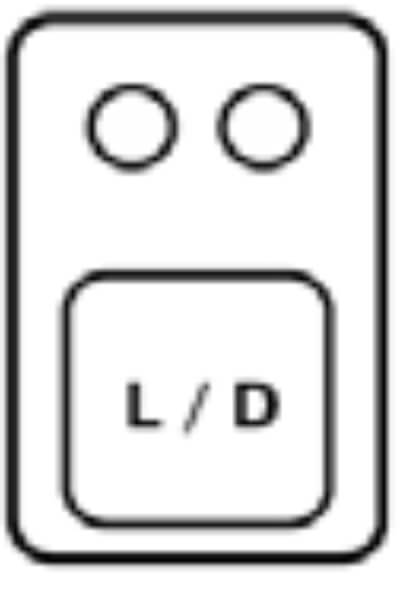 |
|
High Gain Mode Only use High Gain mode when necessary. Very small or very thin labels may not consistently move the light bar between the LABEL and GAP areas. In this case, use the High Gain mode by pressing the button. Do not change while running. AutoGap must be performed after activating High Gain. |
 |
Setup
- Web must remain in contact with the base/mounting plate during operation.
- Label must pass under the [-SENSOR-] indicator.
- Small labels should be centered under the [-SENSOR-] indicator.
- When properly setup, the lights in the gray LABEL area will be on when a label is present, and lights in the gray GAP area will be on when a gap is present.
- All lights flashing rapidly indicates over-current condition, likely caused by wiring error.
AutoGap Setup
If light bar is not moving at least three or four lights, turn on High Gain. |
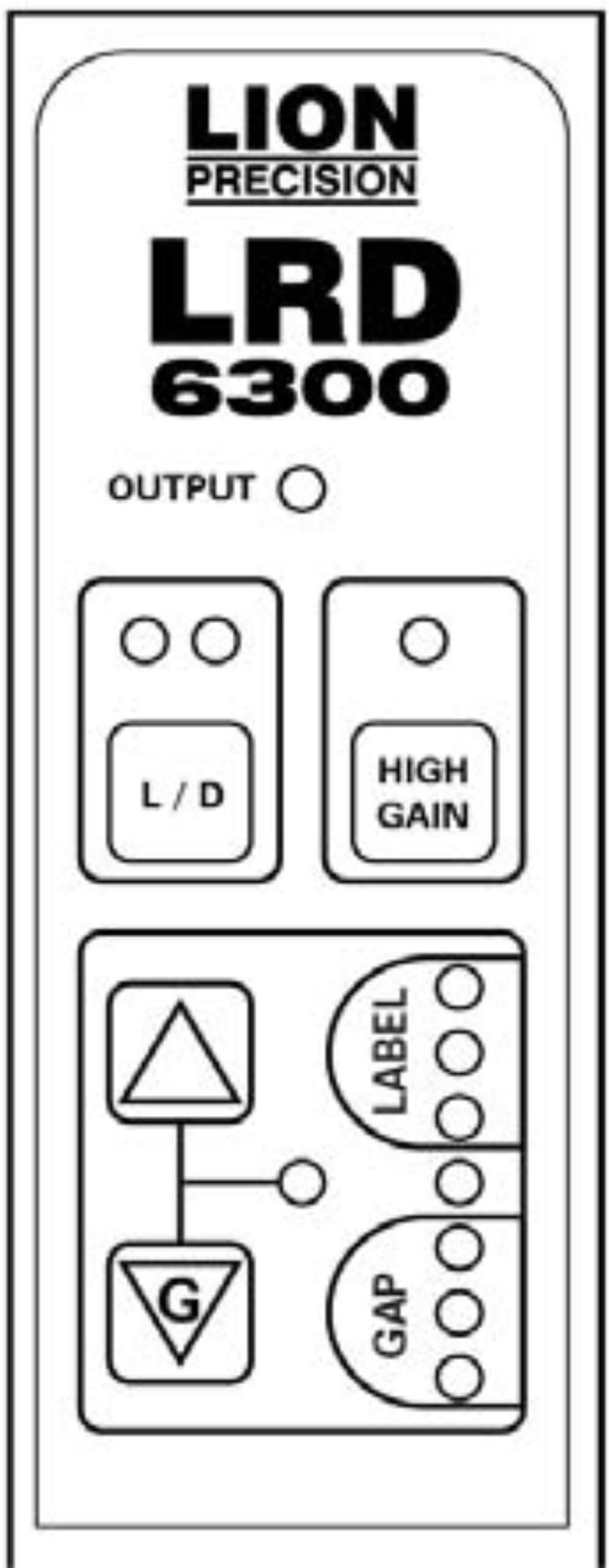 |
Manual Adjustment
When running, the light bar should extend from the gray LABEL area to the gray GAP area. The up and down arrows can be used to fine tune the adjustment if necessary.
If the adjustments reach the end of their range, the last light in the GAP or LABEL area will flash three times when the button is pressed.
The light bar may move toward LABEL while the Up arrow is pressed. This is because the sensor body is deflecting and making the slot smaller. It will return when the button is released and will not affect setup.
Metal/Foil Label Setup
AutoGap Setup on a missing label area may not work reliably for rectangular metallic labels (foil or metalized Mylar). In this case, place an actual gap in the sensor (use alignment groove on the sensor). Then hold the Gap button down for AutoGap as above. Move labels slowly through the sensor. Use manual adjustments if necessary to ensure the light bar is in the LABEL area during labels and GAP area during gaps. If the sensor still cannot be adjusted for reliable operation, you may need the LRD8200 Ultrasonic Sensor.
Light/Dark Switching Outputs
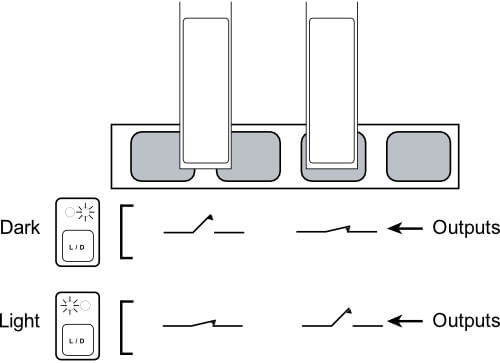
Mechanical Detail
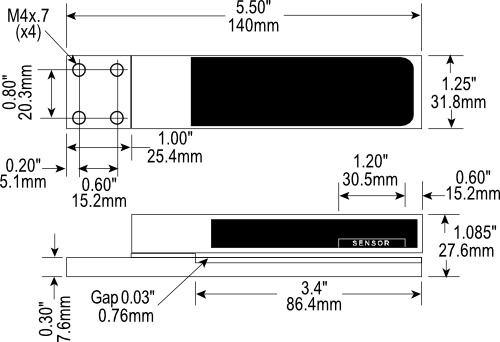
Specifications
| Power Supply | Voltage | 12-24VDC (reverse polarity protected) |
| Current | 80mA | |
| Response Time | on or off | 20µs max |
| Switching Frequency | 10kHz max | |
| Output | Output Current (sinking or sourcing) | 150mA max (overload protected) |
| Switching Output | PNP or NPN, dark or light switching | |
| Temperature | Operating Range | 40°F to 140°F (4°C to 60°C) |
| Protections | Supply | Inverse Polarity Protection |
| Switching Output | Short Circuit and Overload Protection |
